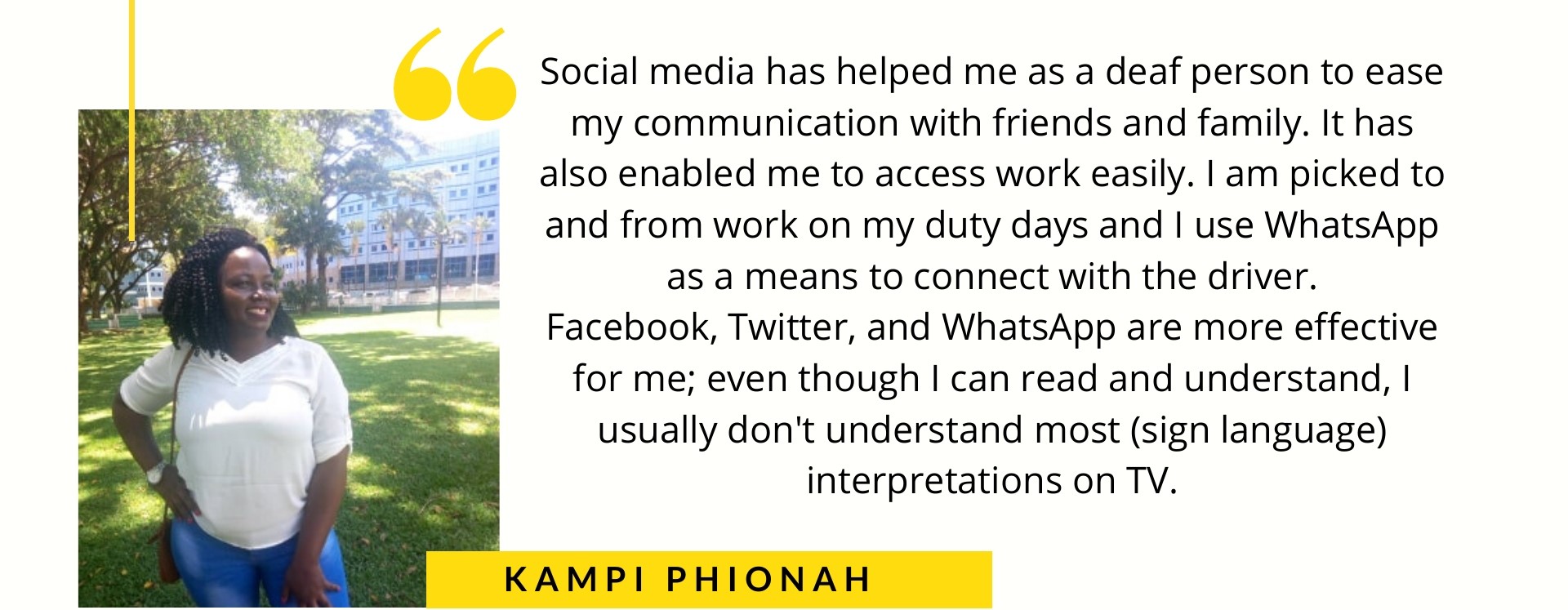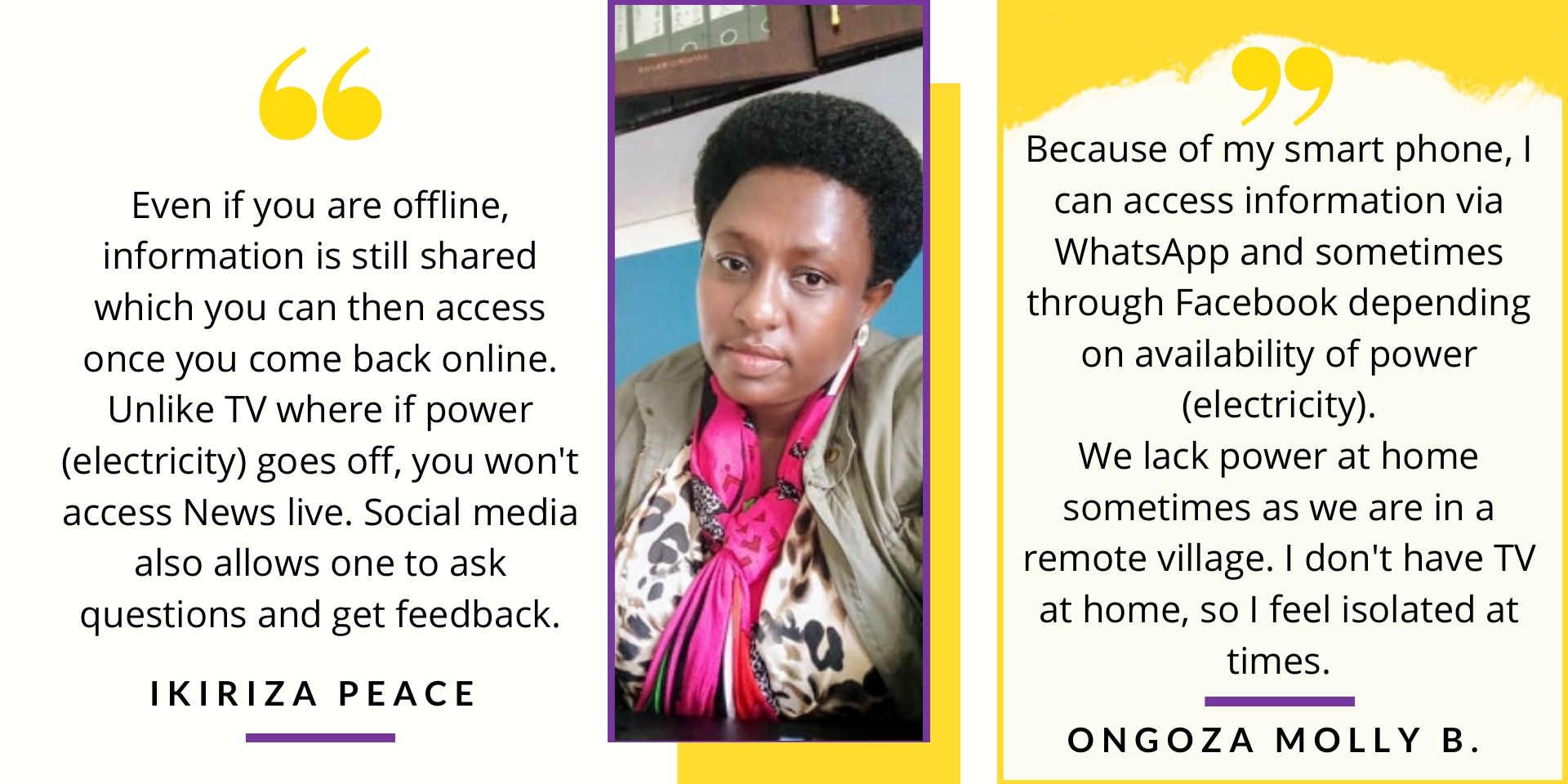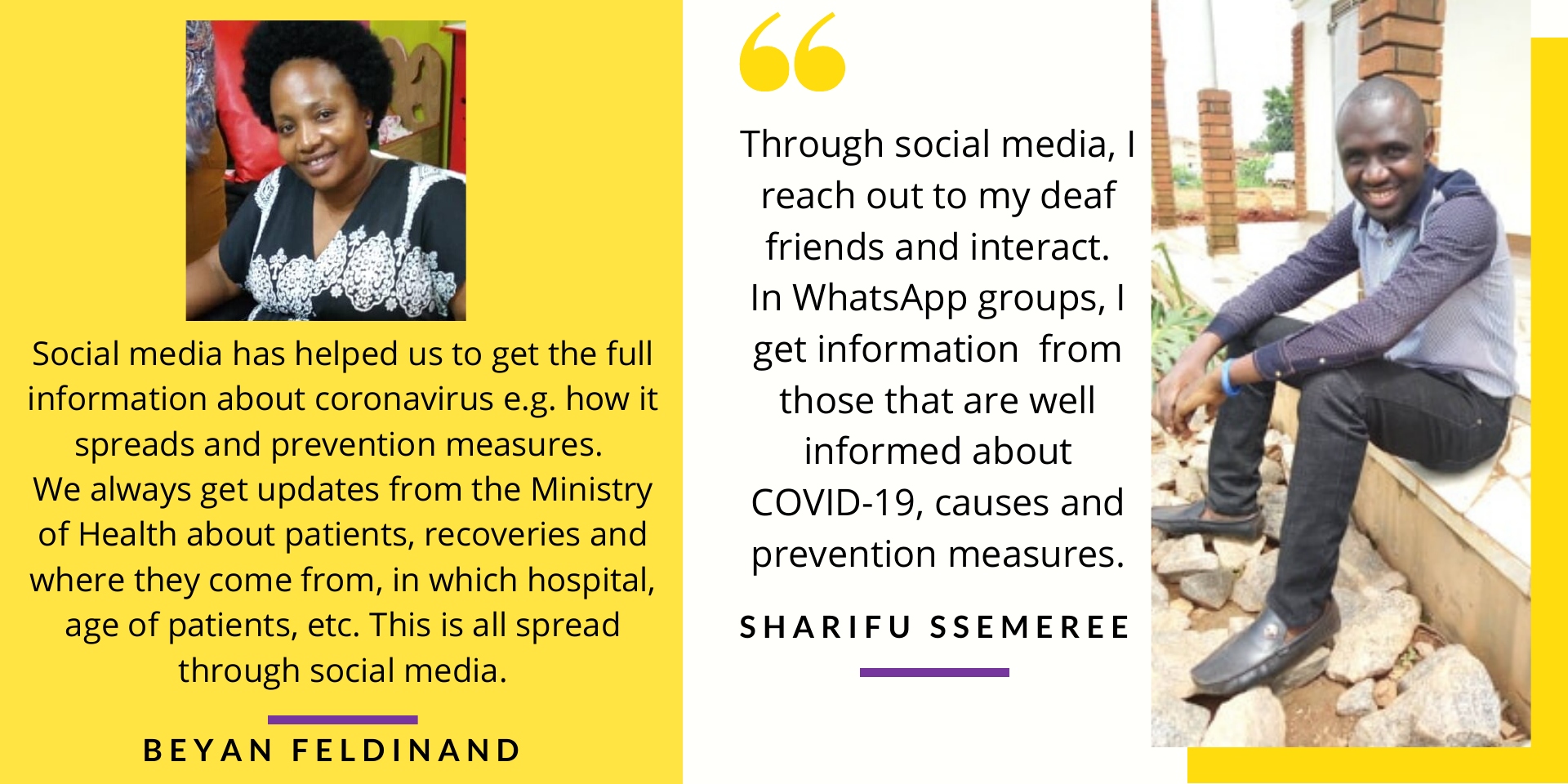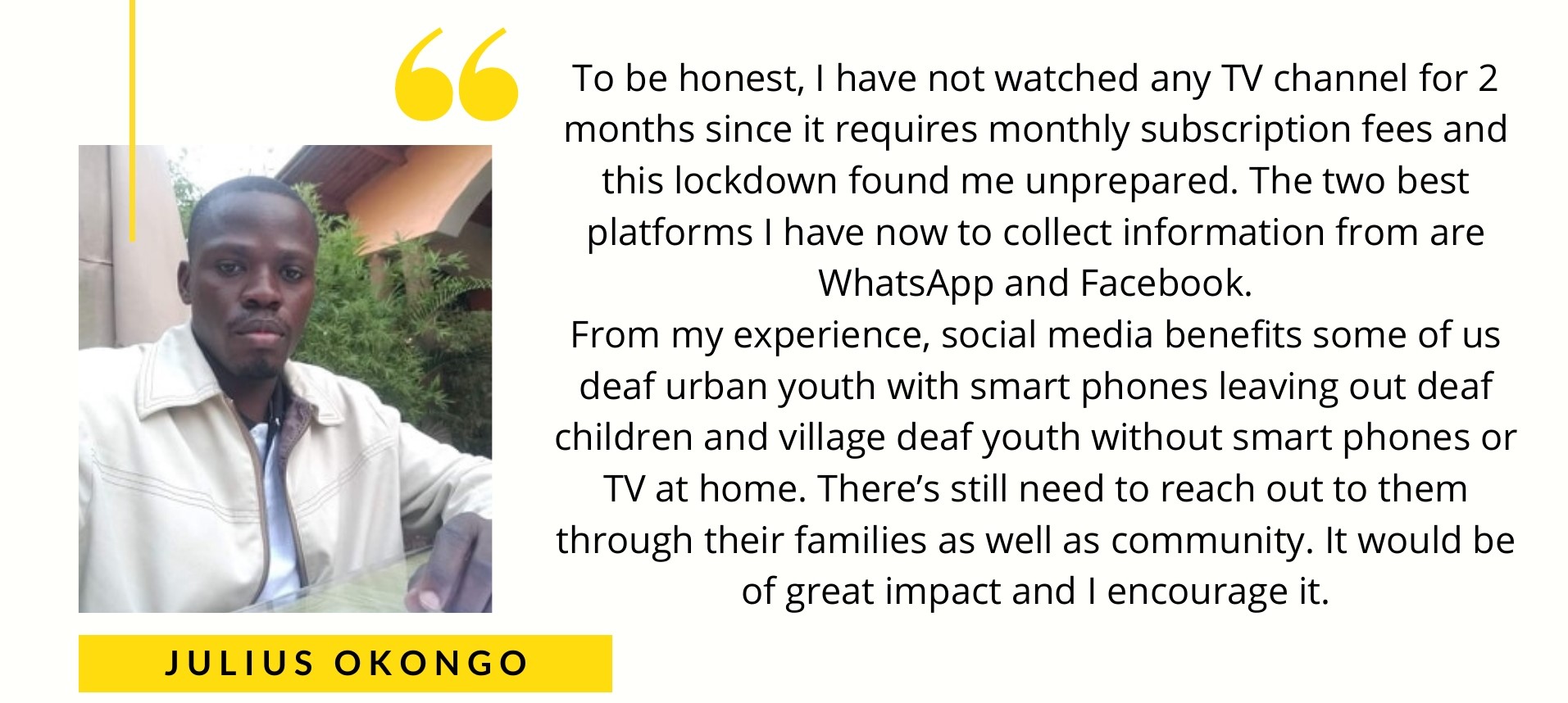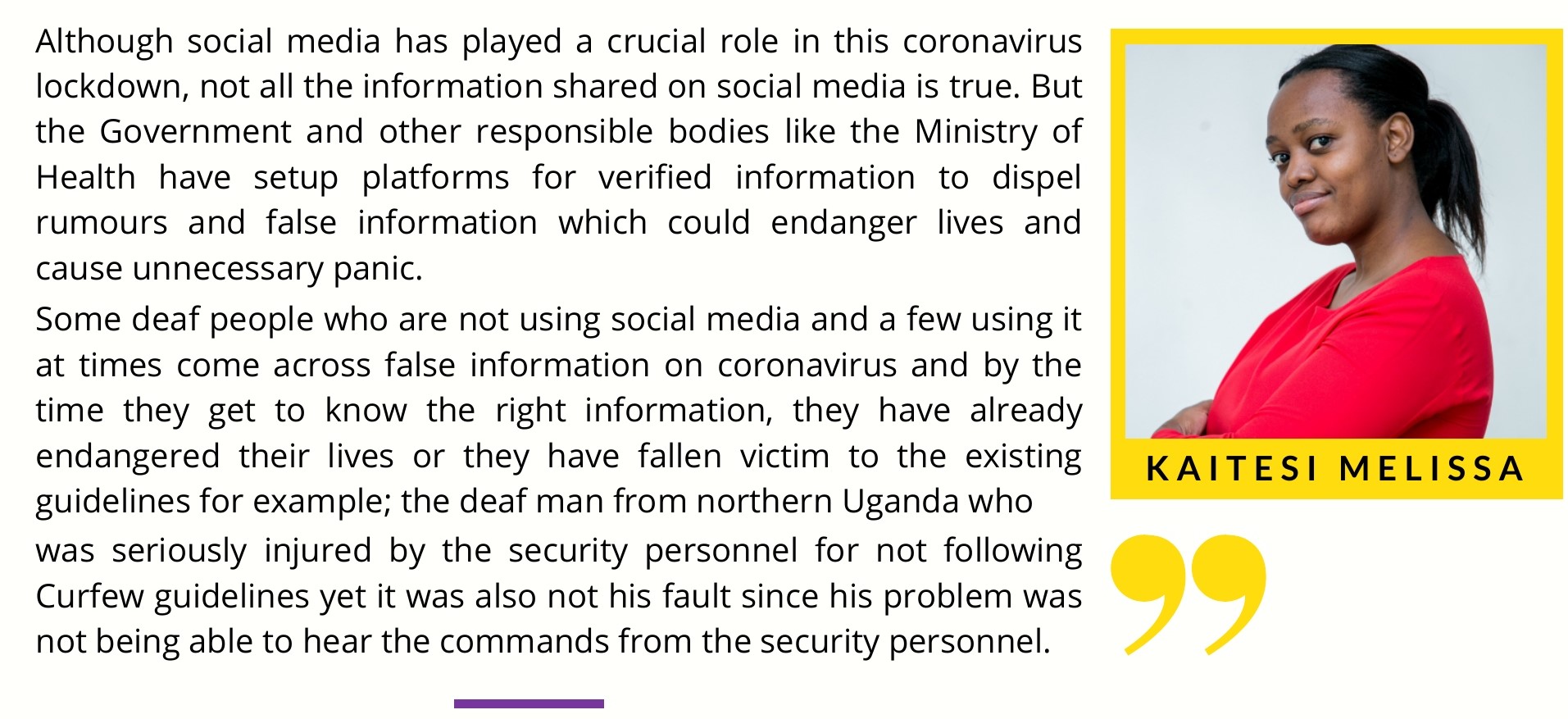#SeparatelyTogetherUG Series: How social media has bridged the communication gap for people with hearing impairments
The #SeparatelyTogetherUG Series features various people with disabilities sharing their experiences throughout the COVID-19 crisis. We intend to use these stories not only as a means of staying in touch with the disability fraternity but to aid advocacy efforts to see to it that the needs of people with disabilities are not forgotten in any interventions in the COVID-19 crisis and beyond.
Social media is, in no doubt, an important communication tool more-so in these times. And for one particular group, people with hearing impairments, social media has become a go-to for information relating to coronavirus, filling in the gaps where traditional media like TV, newspapers and radio fall short. This is a theme that has come up consistently through the stories collected so far in the series. Apart from a clear social function (reducing isolation), a huge population of deaf people prefer to obtain information from social media. Social media solves both the accessibility issue through written information and offers the opportunity to ask questions, get clarity and validate information shared.
Below are a couple of people with hearing impairments expressing the importance of social media to them, particularly during the COVID-19 crisis.
